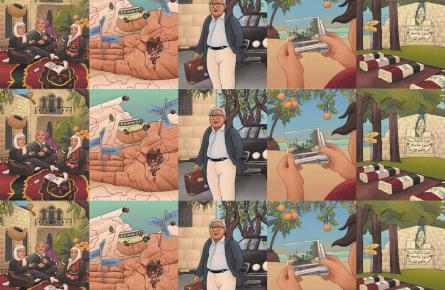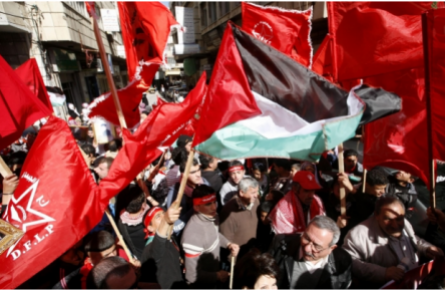The United Nations Relief and Works Agency for Palestine Refugees (UNRWA)’s mandate for humanitarian relief, human development, and protection has been extended on a regular basis every three years over the past seventy years. It is up for renewal by the General Assembly this fall.
Set up primarily to alleviate conditions of starvation and distress, UNRWA has significantly contributed to the human development of refugees through its education, health, relief and social service programs. Agency schools, for example, have prepared millions of refugees for careers, including teachers, doctors and engineers, who have contributed in turn to the development of their communities, the Arab region and beyond. Responding to recurrent emergencies in the countries and territories where it operates – Jordan, Lebanon, Syria, West Bank, Gaza Strip – the Agency has sought to protect the lives and livelihoods of the refugees it serves. An effective means for the disbursement of humanitarian (financial and technical) support, UNRWA’s programs have indirectly furthered conditions for stability and peace.
This is not to say that the Agency’s history has been free of uncertainties. Tensions with refugees, national authorities, and donors have punctuated UNRWA’s lifespan. Refugees opposed the Agency’s early works programs fearing that economic reintegration would undermine their right to return. Anxious about international intervention in what they regarded as their domestic affairs, national authorities have often pushed back against Agency efforts to further articulate its protection mandate toward the refugees. Donors frequently fell short of meeting UNRWA’s expanding budgetary needs driven by repeated emergencies and the protracted nature of the refugee situation.
Nor is it to suggest that UNRWA will face smooth sailing following the expected renewal of its mandate in November. Reliant almost entirely on voluntary contributions, the Agency continues to struggle with chronic donor shortfalls which threaten to undermine the implementation of its mandate and the running of all its operations. Ill-informed and politically-motivated allegations that UNRWA is “irredeemably flawed” – as well as inefficient, ineffective, politicized and corrupt – have been recycled for over a decade with demands by certain critics for the Agency to be shut down. An atmosphere of perpetual crisis militates against much needed well-informed debate about UNRWA and its future.
Few would argue that the Agency’s management and its operations should be free from criticism or debate. There are significant issues that UNRWA urgently needs to address from recent allegations of misconduct by senior staff to the Agency’s chronic budget shortfalls and longer-term issues relating to durable solutions. Accountability for individual wrongdoing should unequivocally be secured without causing harm to UNRWA and especially to the millions of refugees that it serves. This would facilitate renewed discussion of ways to improve international responsibility sharing to ensure sufficient, predictable, and sustainable funding of Agency operations until durable solutions for refugees can be found.
More thought also needs to be given to how UNRWA can better handle the persistent mischaracterization of its work.
Couched in humanitarian language, much of the criticism has less to do with agency’s respect for humanitarian standards and refugee practice, than with the political agenda of certain critics who see the very existence of Palestinian refugees as a threat to Israel’s existence. UNRWA’s defense of its humanitarian mission – rallying for support of the hundreds of schools it operates, the half a million pupils it educates and the millions of patients that its doctors and clinics cure – is a necessary but insufficient response to its critics because it often fails to address the political nature of the challenges that it faces.
The increasing calls for UNRWA’s dissolution, which conceal an attack on the Palestinian refugees as a community, is an assault on the principle of international responsibility sharing which lies at the core of the modern refugee regime. This should be of concern to refugee advocates everywhere. In the absence of a political solution to the inter-related questions of self-determination and durable solutions for Palestinian refugees, shutting down UNRWA will do little more than redirect critics’ response to the perceived threat elsewhere.
The situation of Palestinian refugees has long been treated as a humanitarian issue that needs to be managed rather than a political, legal and moral question that must be resolved. This should be no more. The renewal of UNRWA’s mandate provides an opportunity for engaging refugees, host states and donors alike in the development of a comprehensive vision and strategy for durable solutions based on legal principles and practices that have guided international efforts in facilitating an end to protracted displacement around the world. And when it comes to Palestinian refugees, UNRWA is in a strategic position to provoke that debate and to provide the necessary drive for such solutions.
(Featured image photo credit: Hazem Bader/AFP/Getty Images)




